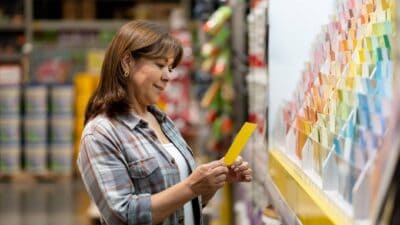Australia's corporate watchdog has revealed that its enquiries prompted Mosaic Brands Ltd (ASX: MOZ) to provision an extra $2.7 million in its books for the 2021 financial year.
Investors apparently didn't mind too much on Thursday, with Mosaic shares shooting up 8.4% to trade at 58 cents mid-afternoon.
The fashion retail conglomerate, which owns brands such as Katies, Millers, Rockmans, Noni B and Rivers, put aside $5.6 million in the 2020 financial year as a 'lease make good' provision.
A lease make good provision is money set aside to restore a rented property back to a certain condition at the end of the lease.
According to the Australian Securities and Investments Commission (ASIC), it raised concerns to Mosaic that the $5.6 million was not enough.
"The adequacy of provisions to meet obligations is important in providing useful and meaningful information to investors and other users of financial reports."
$2.7 million added to Mosaic's provisions
ASIC took credit for Mosaic increasing the provision to $8.3 million in the just-reported 2021 financial year results.
The Motley Fool has contacted Mosaic Brands for comment.
The commission reminded the market that the directors of a company were primarily responsible for the financial report.
"Companies must have appropriate processes, records and analysis to support information in the financial report," stated ASIC.
"Companies should also apply appropriate experience and expertise, particularly in more difficult and complex areas of accounting policies and estimates."
This is not the first time Mosaic Brands has been in trouble with the authorities this year.
In May, the company paid a $630,000 penalty after confessing to making misleading claims about its hand sanitiser and face mask products.
According to the Australian Competition and Consumer Commission (ACCC), those offences happened at the peak of the first wave of COVID-19 between March and June last year.
NoniB's sanitiser claimed it contained 70% alcohol, Millers' sanitiser claimed 75% and a third product sold online claimed it was "WHO-approved".
All of those claims were found to be false.
"Independent testing of the hand sanitisers commissioned by the ACCC found that one of the sanitisers tested contained an alcohol content of 17% and another had an alcohol content of 58%," ACCC deputy chair Delia Rickard said at the time.








